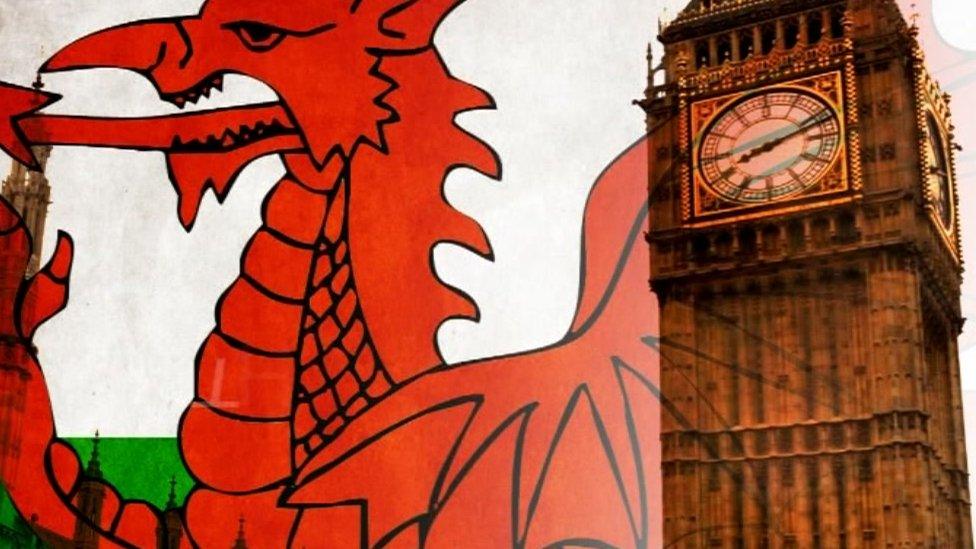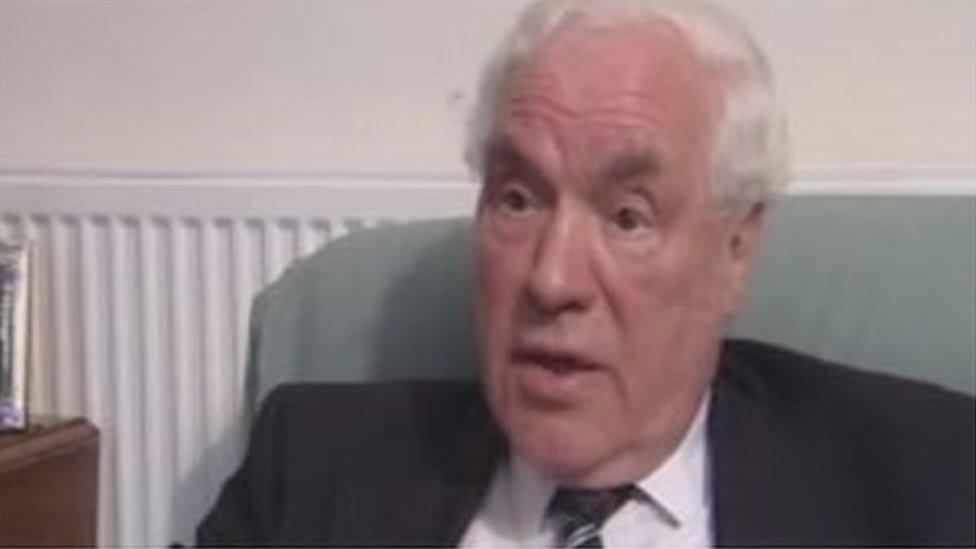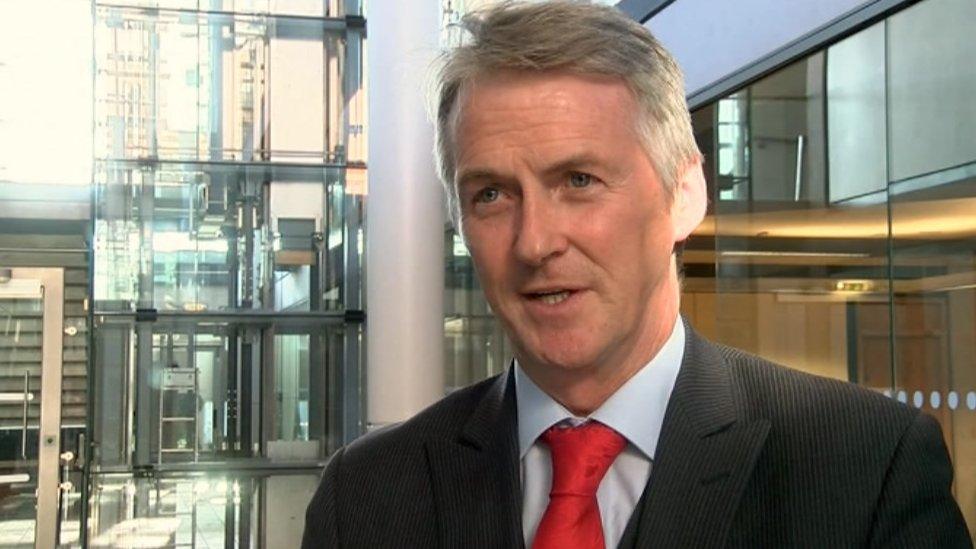Wales Bill could 'diminish authority', Lord Elystan-Morgan says
- Published

One of Wales' most long-standing devolution supporters has said the new draft Wales Bill reflects Westminster's "huge imperial mentality".
Lord Elystan-Morgan, who led the 1979 Yes for Wales campaign, said the Bill could lead to "a diminished authority".
Meanwhile, Wales Office minister Guto Bebb has accused "some grandees in the Welsh Assembly" of making an "overblown attack" on the planned legislation.
The Bill shakes up how power is divided between the assembly and Westminster.
Lord Elystan-Morgan will be involved in the Bill's second reading in the House of Lords on Monday.
Currently, the areas that AMs can make new laws on are defined in legislation.
But under the planned system, the areas that will remain under Westminster's control will be set out in a list of reserved powers, with AMs being told what they cannot legislate on rather than what they can.

Lord Elystan-Morgan told BBC Radio Wales' Sunday Supplement this was the fourth piece of legislation "attempting substantial constitutional change for Wales" within a period of 20 years.
But he said it differed from its predecessors, which he described as "progressive", in that it gave him "every reason to believe that we will have a diminished authority over our own domestic affairs".
Lord Elystan-Morgan said the list of reserved powers was 250 in the draft Bill, but has been whittled down to 200.
"They're still very messy," he said, describing many as "utterly and monumentally trivial".
Asked if the Bill could be fixed by the Lords, he said it was not just the wording that was the problem, but a "huge imperial mentality".
"This imperial prejudice overlays the whole situation," he said.
'Dominion status'
"The level of devolution we had in July 2014 was much higher," he said.
"What you have now is total clarity, but clarity at the expense of retreat.
"In other words our constitutional situation has now been clearly defined, but defined in such terms as to make it very minor compared to what we had previously.
"The state of flux of politics in Britain allows us to exercise imagination and initiative. We should be aiming for something of the nature of dominion status."
Guto Bebb said the draft Wales Bill provides greater clarity
Speaking on BBC Sunday Politics Wales, Wales Office minister Guto Bebb said the Bill went far beyond the 2011 referendum which gave the Welsh Assembly powers in 20 subject areas.
Its aim, he added, was to "have clarity so we know what is the responsibility of Westminster and what is the responsibility of Cardiff".
"There has been a cross-party agreement that there is a need to move forward to a clarified situation," he said.
"The people of Wales are not well served by having decisions which are a grey area - that is not serving devolution in my view."

Mr Irranca-Davies: Bill 'more complex, more bureaucratic'
The Bill has also drawn criticism from assembly members on the cross party constitutional and legislative affairs committee, who described it as over complex and could result in the roll-back of devolution.
Committee chairman Huw Irranca-Davies said the idea was for the Bill to be "clear, durable, long lasting" and "reflecting the will of the people of Wales".
"Unfortunately, this Bill doesn't do it," he said, describing it as "neither clear or workable".
"It's more complex, more bureaucratic and certainly won't be long lasting."
Mr Irranca-Davies added there was a "great burden of responsibility" on the Lords to amend the Bill.
- Published12 September 2016

- Published12 September 2016
- Published7 June 2016
